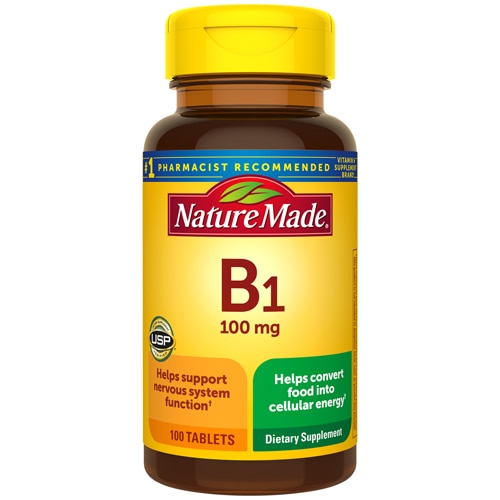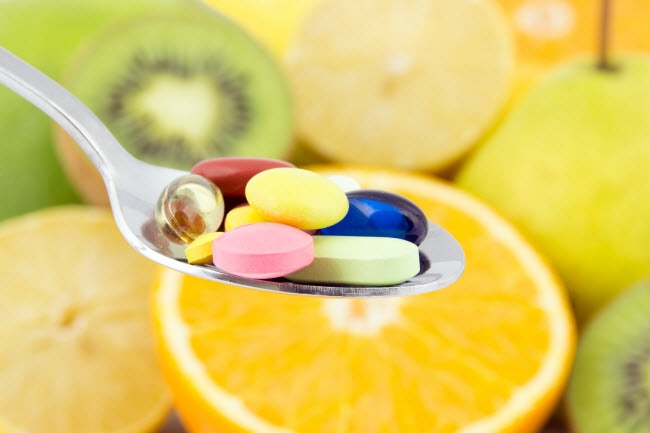While it’s ideal to get vitamins from whole foods, sometimes you might need a little extra help from supplements. (Though, do always consult with your physician before taking vitamins to make sure you aren’t overdoing it each day.)
And when that’s the case, you’ll want to make sure you’re taking them the right way in order to fully reap the health benefits and maximize absorption. Plus, you don’t want to get sick, which can happen when certain supplements and medications aren’t taken with enough food in the belly.
Of course, vitamins, like vitamin C or vitamin D, don’t seem as worrisome as a heart medication, but they can actually cause different reactions in your body when in contact with one another. So, it’s better to be smart with usage and plan your meals and supplements accordingly.
Here’s what to know about various vitamin supplements and the rules for taking them.
First, should you take vitamins on an empty stomach?
You can—but some are better taken with food. Most of the time, supplement labels will indicate if they should be taken with meals or on an empty stomach, too.
Why? “Certain vitamins are more acidic in nature and can cause stomach irritation. If you're always popping vitamins on an empty stomach, I say switch to having them after you've had a small snack or food,” says Maggie Michalczyk, MS, RD.
This goes for water-soluble vitamins (C, B and folate, for instance), which don’t need food for absorption. “You will still absorb water-soluble vitamins even if you're not taking them on empty, and if that works better for you, go with it,” she says.
What’s more, iron supplements also cause nausea in some. “While iron is best absorbed on an empty stomach, it's also the culprit of nausea when taken on an empty stomach,” she says. Take note of how you feel with, and if you feel better when you take it with food, then eat something.
Plus, when you are pairing vitamins with other foods, you’ll want to pick combinations that support each other, rather than interfere with absorption on either end.
What supplements should I take with food?
“Some vitamins will be better utilized/absorbed with certain food, whereas some may elicit negative interactions/effects when consumed with certain foods,” says Kelly Jones MS, RD, CSSD, LDN. Fat-soluble vitamins (which include vitamins A, D, E and K) will be better absorbed and used by the body when taken with a meal containing fats.
“If you're having avocado toast (good source of healthy fat) for breakfast that is a perfect opportunity to take a fat-soluble vitamin,” says Michalczyk. The same is true of CoQ10, curcumin (from turmeric), CBD, and even fish oil, she says.
A few more options? “Eating some yogurt, or having some healthy fats such as avocado, or almonds or walnuts with breakfast is the best way to speed absorption of fat-soluble vitamins,” says Dr. Robert Glatter, MD, an assistant professor of emergency medicine at Northwell Health and attending emergency physician at Lenox Hill Hospital. Another example: “non-heme (plant) iron is better absorbed with vitamin C,” says Jones. So, you might squeeze fresh lemon over a bed of spinach to further maximize iron absorption from the greens.
What’s more, “both plant iron and plant zinc are absorbed in higher amounts when paired with an animal protein. So, if someone doesn’t eat red meat, they’ll absorb iron from spinach better if it’s eaten with eggs or chicken for example,” says Jones. Of course, if you are vegan you cannot follow this rule, and so if you’re worried about absorption, you speak to your doctor. (Although you should still be fine—just you won’t enhance the absorption as meat-eaters might.)
Lastly, vitamin D and calcium pair well to make each other work more efficiently, so feel free to combine salmon and Greek yogurt sauce or fortified eggs and cheese, for example. If you’re taking supplements, try taking your vitamin D supplement with a glass of milk or kefir. If you’re taking a calcium supplement, take it when eating a hard boiled egg or with some beef liver on crackers.
And, take note: “it’s best to take vitamin D in the morning with healthy fats as opposed to the evening since vitamin D may reduce secretion of melatonin, a key hormone that induces sleep,” adds Glatter.
Vitamins & foods you should avoid consuming together
Certain foods can alter mineral absorption. “For example, iron absorption is enhanced by acids, and vitamin C but is inhibited by compounds in foods and beverages such as tea, coffee, cheese and other high calcium foods,” says Jones. “Other interactions include overconsumption of zinc leading to copper or iron deficiency,” she says. So, you might want to not take an iron supplement with a cup of iced coffee or tea or with a glass of milk.
“Another thing to note is alcohol effects on vitamin absorption. For example, thiamine (vitamin B1) is impacted by alcohol consumption in that there is reduced absorption often resulting in a deficiency when excessive alcohol use persists,” says Jones. If you’re taking vitamin B1, take it two hours before or after drinking alcohol to make sure it’s properly absorbed.
The takeaway? “While it may not be necessary to take vitamin and mineral supplements on an empty stomach it’s important to note what foods you are consuming and what they contain, and how they may or may not interact with the supplement,” says Jones. That way you can get the benefits you’re looking for without letting that supplement go to waste.
And get into a routine. “My recommendation is if you're taking a multivitamin, get in the habit of having it when you wake up in the morning before you have breakfast, and then if you are specifically taking certain fat soluble or water soluble vitamins, try to take them as advised,” says Michalczyk.




